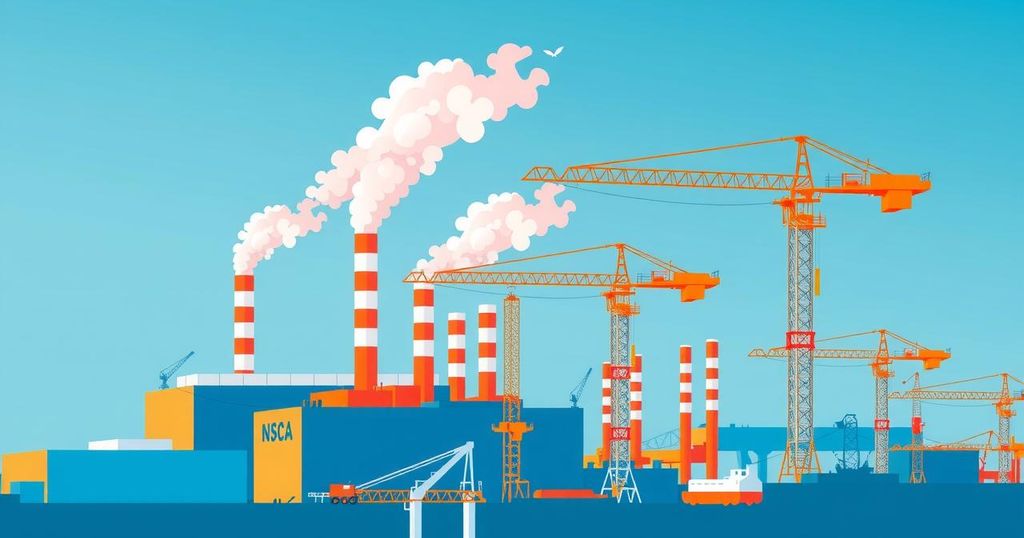Steel Development: A Catalyst for Nigeria’s Economic Growth, According to Minister Audu

Prince Shuaibu Abubakar Audu emphasized the vital role of steel development in Nigeria’s economic growth, sharing plans to rehabilitate the Ajaokuta Steel Company, enhance local production, and attract foreign investments. Key initiatives include collaborations with the Ministry of Defence, a summit for stakeholders, and the advancement of the Metallurgical Industry Bill to regulate the sector effectively.
Prince Shuaibu Abubakar Audu, the Minister of Steel Development in Nigeria, emphasized the pivotal role of the National Steel Raw Materials Exploration Agency (NSRMEA) in the federal government’s ambition to elevate the economy to $1 trillion by 2030. During his visit to the agency in Kaduna, Audu highlighted President Bola Tinubu’s commitment to rehabilitating the Ajaokuta Steel Company, aiming to enhance local steel production and lessen the $4 billion expenditure on steel imports annually.
Audu underscored the importance of import substitution to alleviate foreign exchange pressures, asserting that optimal operation of the industry’s exploration sector is crucial for achieving the desired steel production levels. He commended NSRMEA for its commendable performance, noting it is regarded as one of the top performers among agencies within his ministry.
The minister also revealed plans to collaborate with the Ministry of Defence and the Defence Industries Corporation of Nigeria (DICON) for military hardware production, reinforcing the establishment of a military-industrial complex in Nigeria. A Memorandum of Understanding (MoU) has been prepared and is pending presidential approval, marking significant progress in this initiative.
Audu announced plans for a summit aimed at consolidating stakeholder contributions to develop a detailed blueprint for the steel industry’s growth. He noted the ongoing advancement of the Metallurgical Industry Bill, which has successfully passed its second reading in the House of Representatives and aims to establish a regulatory framework to benefit both private and corporate steel stakeholders.
Furthermore, Audu spoke about attracting foreign direct investments (FDIs) into the steel sector, highlighting a commitment made during President Tinubu’s visit to New Delhi in September 2023 to produce five million metric tonnes of steel in Nigeria. A Chinese firm has also initiated a $300 million investment in a new steel plant in Ogun State, which is expected to significantly enhance the nation’s steel production capabilities.
Audu expressed optimism regarding the current reforms, stating a target of producing 10 million metric tonnes of steel annually within five years. He affirmed that successful implementation of these plans would considerably reduce Nigeria’s dependency on imported steel.
The article elaborates on the strategic initiatives by the Nigerian government, spearheaded by Minister Shuaibu Abubakar Audu, to enhance the country’s steel production capabilities and reduce reliance on imports. Key efforts include the rehabilitation of Ajaokuta Steel Company, partnerships for military production, and attracting foreign investments. The passing of the Metallurgical Industry Bill is positioned to provide a regulatory framework for industry governance, ultimately supporting Nigeria’s economic growth objectives.
Original Source: www.thisdaylive.com








